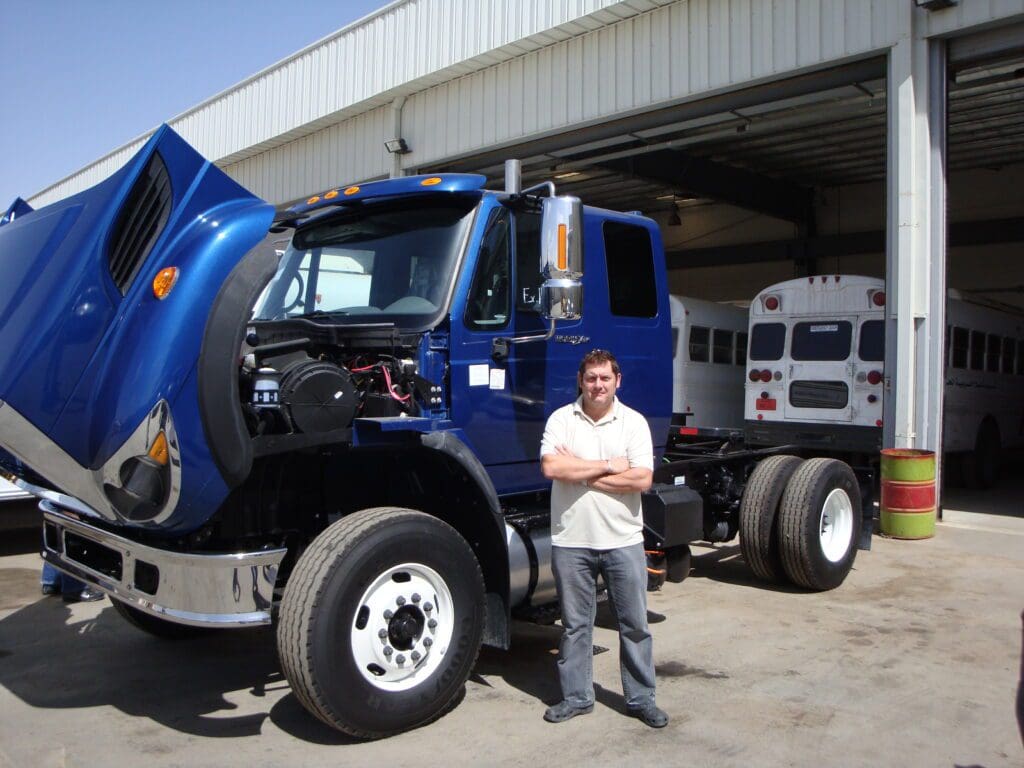Ways to prepare field engineers for life on the road
How do you prepare your team of field service engineers for life on the road? There are a large number of field service engineers who spend a lot of time in a vehicle travelling to different customer sites. In this article Lee Walters discusses ways to prepare your field engineers for their role both on site and while they travel.
Lee has managed fleets of over 2000 pieces of kit both in the UK and overseas. The vehicles have ranged from company cars to 44-ton trucks, off road equipment including Caterpillar D9s, JCBs and cable laying trailers. A key part of his role has been preparing and supporting his team who drive the vehicles.


How to ensure your vehicle fleet represents your company
Introduction
I feel that the role of the field service engineer is one of the most important in the engineering arena. To understand why the role of FSE is so key, we have firstly to look at what this person means to the employer and to the customer. I have based my comments on engineers I have had working for me. So, I have summarised my expectations of them, their vehicle, and the equipment they had on board.
So, to summarise this person, there are five areas to consider for their life on the road to be successful:
Appearance
Safety
Knowledge
Preparation
Sales.
Appearance
They are the main interface representing their employer to the customer. In other words, “they are the business” in a nutshell. So, they should have a smart appearance even if they wear overalls or other PPE. Once they arrive on site first impressions go a very long way, so they must come across professionally and have a positive demeanour.
Safety
All engineers whatever their role must always have the necessary PPE (Personal Protective Equipment) with them. Also, if any chemicals are carried in the vehicle, they need to be fully conversant with COSHH (Control of Substances Hazardous to Health) regulations. That means having the correct data sheets for all the chemical products being carried.
Knowledge
They should have full technical knowledge for their work activity along with all the necessary accreditations for all training needs. In addition, all the equipment they might need in their workday needs to be PAT (Portable Appliance Testing) tested and in date.
The field engineer needs to be able to produce on request all up to date RAMs (Risk Assessment Method Statements).
Preparation for life on the road
If the role is a hands-on role, then the field engineer must have a well-stocked vehicle that looks well kept. That means the field engineer needs to clean the vehicle as often as possible and more so in certain types of weather conditions. As all members of the team know the service vehicle represents the employer’s persona. So, if they turn up on site and the service van is muddy and has a covering of road traffic film etc., it doesn’t give a very good first impression!


Sales
What we don’t normally mention is that the FSE is a salesperson as well. So, they should be looking at every opportunity to look at up-selling if possible. This shows both the customer and the employer that the FSE has both parties’ interests at heart by highlighting any opportunities to update/replace time served equipment. Replacing or updating equipment will save both customer and employer money in the long run. It may seem the employer could be losing out in the short term, but I feel this could cement a better long term business relationship. This is because it is showing the customer you are not there just to be “reactive” but to be a pro-active service provider. A service provider who is always looking to reduce the service overheads along with reducing carbon footprint reductions.
Conclusion
This article covers most aspects of what is involved in being a good field service engineer. This role cannot be understated as the role of the FSE will not diminish but grow in the coming years. This is because more engineers will be needed as a lot more equipment will be automated and more diverse and technical so FSEs and AI (Artificial Intelligence) will work together in unison.
The author of Ways to prepare field engineers for life on the road
To read more about Lee Walters and his career and experience, here is an earlier article.
How to manage vehicle fleets – people, vehicles, and the future


Further reading
Successful Field Engineers – Nine things to do in 2024
Life of a Field Service Engineer who loves Italian technology


Responses